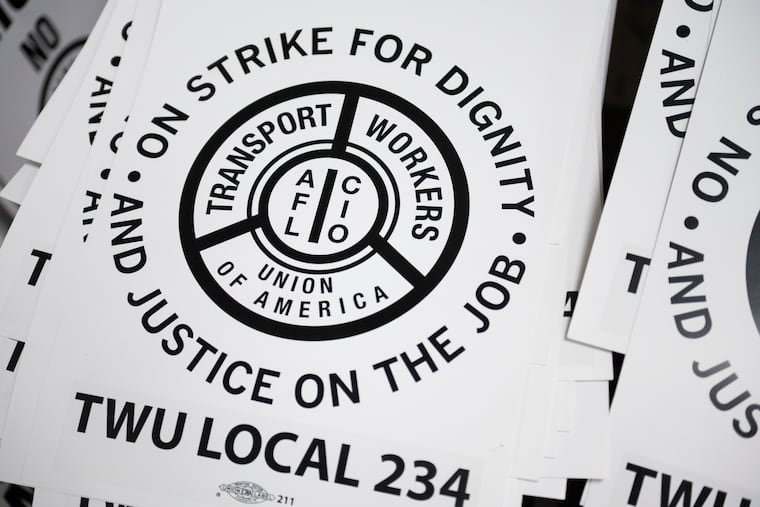SEPTA strike possibility continues to loom as another transit union’s contract nears expiration
Talks continue between SEPTA and the Transport Workers with no contract and no strike.

SEPTA management and Transport Workers Union Local 234 negotiators met for several hours Thursday without reaching agreement on a new labor contract but planned to continue talks.
Bottom line for transit riders: No strike, yet. SEPTA service should operate as usual on Friday.
Local 234 members have been working without a contract since their current 1-year agreement expired in the early morning of Nov. 8. The union represents about 5,000 bus, subway, and trolley operators, mechanics, cashiers, maintenance workers, and custodians.
TWU is seeking raises for its members and concrete action from SEPTA on last year’s promises to deploy measures to help protect frontline transit workers from assaults, harassment and general disorder on the system.
Meanwhile, SEPTA’s contract with a second union representing 350 suburban bus, trolley and Norristown High Speed Line operators expires Monday. SMART Transportation Division Local 1594 also wants action on safety from public attacks and harassment and an increase in wages.
» READ MORE: How to navigate SEPTA if transit workers go on strike
TWU Local 234 has been in contact with the union representing 9,000 city workers about potential coordination. AFSCME District Council 33, whose members voted to authorize a strike, has big contingents in the sanitation and prison departments.
“We very well may be working in collaboration,” DC33 President Greg Boulware told The Inquirer. TWU has acknowledged talking with the city union on the possibility of coordination but has not commented on specifics.
Earlier in the week, SEPTA announced fare increases that would have riders paying 29% more than they do currently beginning on New Year’s and deep service cuts that could take effect in July, both in response to a fiscal crunch.
That has sparked urgent calls from political leaders and transit advocacy groups for Gov. Josh Shapiro to come to the rescue with an infusion of cash to help SEPTA get by without taking actions that it said could cause a “death spiral.”
Much of the attention has focused on a state’s ability, in some circumstances, to “flex” federal highway funds for public transit needs. Shapiro has asked his staff to research options for making emergency funds available to SEPTA and other agencies, including a possible “flex,” according to several sources familiar with discussions.
SEPTA entered the year facing a recurring $240 million annual deficit caused in part by the exhaustion of its share of federal pandemic relief for transit agencies, as well as its slow recovery from ridership losses.
State Senate Republicans blocked Shapiro’s proposal to add $283 million a year in new state aid to public transit by increasing its share of sales-tax revenue. SEPTA has been using a one-time infusion of $46 million approved by the legislature, along with cost-cutting and some transfers from a reserve fund.
State Rep. Ben Waxman (R., Phila.) wrote to Shapiro asking him to allocate available highway funds to transit systems soon to provide short-term relief. He said the state has redirected about 2% of such money to transit since 2013.
“Through flexing federal formula funds we have an opportunity to sustain services for hundreds of thousands of Pennsylvanians who rely on public transportation daily,” Waxman wrote. “Although this situation is not ideal, it is now our only option, given the Senate’s decision to leave this critical funding need unmet.”
Council Majority Leader Katherine Gilmore Richardson in a statement Thursday called for “the use of federal infrastructure funds from state highway projects to local transportation authorities.” She was speaking in support of a resolution on the “flex” introduced by Council President Kenyatta Johnson — and did not cite the governor by name.